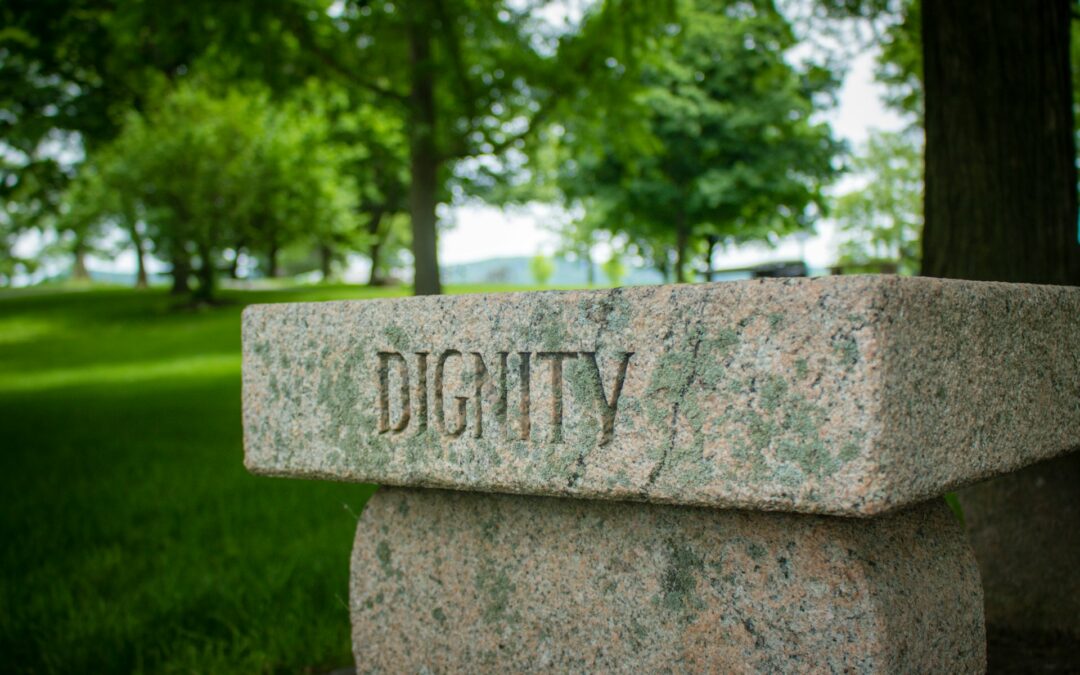In the ever-evolving quest for happiness, we often find ourselves in a relentless pursuit of that elusive emotion. Happiness, we believe, is the ultimate goal of life—a state of perpetual contentment and joy. Yet, what if we were to challenge this conventional wisdom? What if we dared to question the value of happiness in comparison to the dignity that accompanies a life well-lived? In this thought-provoking exploration, we journey through diverse human experiences, unraveling the intricate relationship between happiness and dignity.
Happiness: The Paradox of Plenty
Happiness, as a concept, is rich and multifaceted, encompassing a range of emotions and experiences. It often takes center stage in our lives, influencing our decisions and shaping our perceptions. It’s an emotion we strive for, one that we believe will complete us and define our existence.
However, as seasoned travelers often discover, there exists a captivating paradox of happiness when visiting impoverished nations. These journeys expose us to people who, despite their material poverty, radiate a genuine sense of contentment and joy. The scenes of children playing in the streets, communities thriving in the face of adversity, and the simple, heartfelt laughter of individuals who seemingly have so little can be both humbling and inspiring.
In these moments, we are forced to reflect on our own values and priorities. The stark contrast between their material wealth and our own often leaves us pondering the extent to which we take our privileges for granted. Basic amenities like running water, electricity, and personal safety are often luxuries that many of us in more affluent societies rarely think twice about.
However, it’s important to approach this paradox with a discerning eye. While it’s indeed inspiring to witness happiness amid adversity, we must not romanticize poverty or underestimate the hardships that those living in impoverished conditions endure. These individuals are not immune to suffering; rather, their resilience and ability to find moments of happiness in the face of adversity serve as a testament to the strength of the human spirit.
The Resilience of the Human Spirit
Traveling to these regions exposes us to the astonishing capacity of the human spirit to adapt and endure. Despite facing dire circumstances, individuals in impoverished areas demonstrate an uncanny ability to find contentment in the simplest of joys. This resilience is not a reason to undervalue happiness but, rather, a poignant reminder of the human capacity to endure and adapt.
As we spend more time in these communities, we begin to uncover the true depth of their suffering. Poverty, insecurity, lack of access to healthcare, and the ever-present threat of disease are often harsh realities that cast a shadow over their lives. It becomes evident that the ability to adapt to such adversity does not negate the importance of addressing these critical issues. Instead, it underscores the necessity of our gratitude for the privileges we enjoy and our responsibility to contribute to the betterment of their circumstances.
Happiness: A Set Point of Contentment
Psychologist Dan Gilbert’s research unveils a fascinating aspect of human psychology—a set point of happiness. Regardless of our circumstances, we tend to gravitate back toward this baseline of contentment. Gilbert refers to this phenomenon as the psychological immune system—a mechanism through which we alter our perceptions to maintain a sense of contentment.
While this psychological resilience can be impressive, it’s crucial to question whether optimizing for happiness is always the right path. Gilbert’s research suggests that people may readily adapt to poverty and hardship, leading them to perceive their situation more positively than outsiders might expect. However, this raises the profound question of whether we should celebrate this adaptation or strive for something more.
The Missing Component: Human Dignity
This brings us to the missing piece of the happiness puzzle—human dignity. While happiness might be achievable in various circumstances, dignity often remains elusive in the face of injustice, inequality, and inhumanity. The pursuit of happiness should not overshadow the importance of preserving human dignity.
Incorporating these insights into his book, “The Subtle Art of Not Giving A F*ck,” became a pivotal moment for Mark Manson. The book underscores the idea that while happiness is valuable, it should not eclipse the significance of dignity. It challenges the prevailing narrative of positivity and explores the deeper complexities of the human experience.
Conclusion: A Holistic Perspective
As we reflect on the pursuit of happiness, we must remember that it’s just one facet of a rich and multifaceted life. Happiness is indeed important, but it should be viewed within the broader context of human dignity and the pursuit of a meaningful existence.
Our encounters with individuals living in impoverished conditions teach us that happiness, while attainable, does not diminish the gravity of their suffering. It’s a reminder to be grateful for the privileges we possess and to use them for the betterment of society.
Ultimately, the pursuit of happiness should coexist with the preservation of human dignity. We must strive to create a world where both happiness and dignity flourish, where the pursuit of personal contentment aligns with a broader commitment to justice and the well-being of all. In this balanced perspective, we find the true essence of a fulfilled and purposeful life—one that values both happiness and dignity as essential components of human flourishing.

